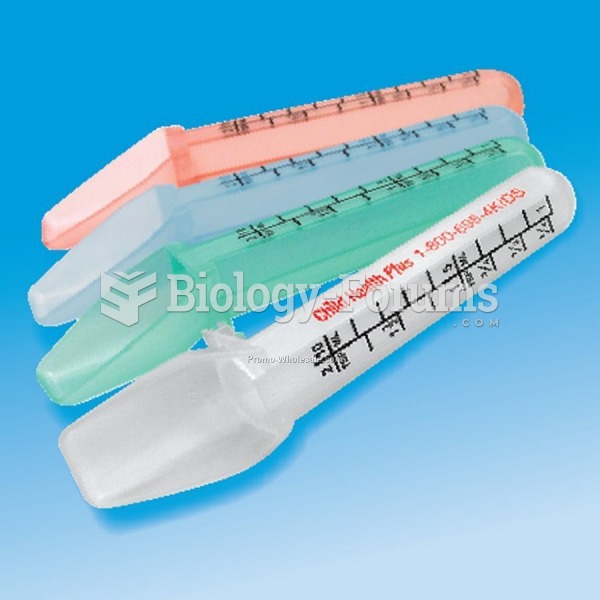|
|
|
The most common childhood diseases include croup, chickenpox, ear infections, flu, pneumonia, ringworm, respiratory syncytial virus, scabies, head lice, and asthma.
It is difficult to obtain enough calcium without consuming milk or other dairy foods.
On average, someone in the United States has a stroke about every 40 seconds. This is about 795,000 people per year.
Urine turns bright yellow if larger than normal amounts of certain substances are consumed; one of these substances is asparagus.
Although the Roman numeral for the number 4 has always been taught to have been "IV," according to historians, the ancient Romans probably used "IIII" most of the time. This is partially backed up by the fact that early grandfather clocks displayed IIII for the number 4 instead of IV. Early clockmakers apparently thought that the IIII balanced out the VIII (used for the number 8) on the clock face and that it just looked better.







